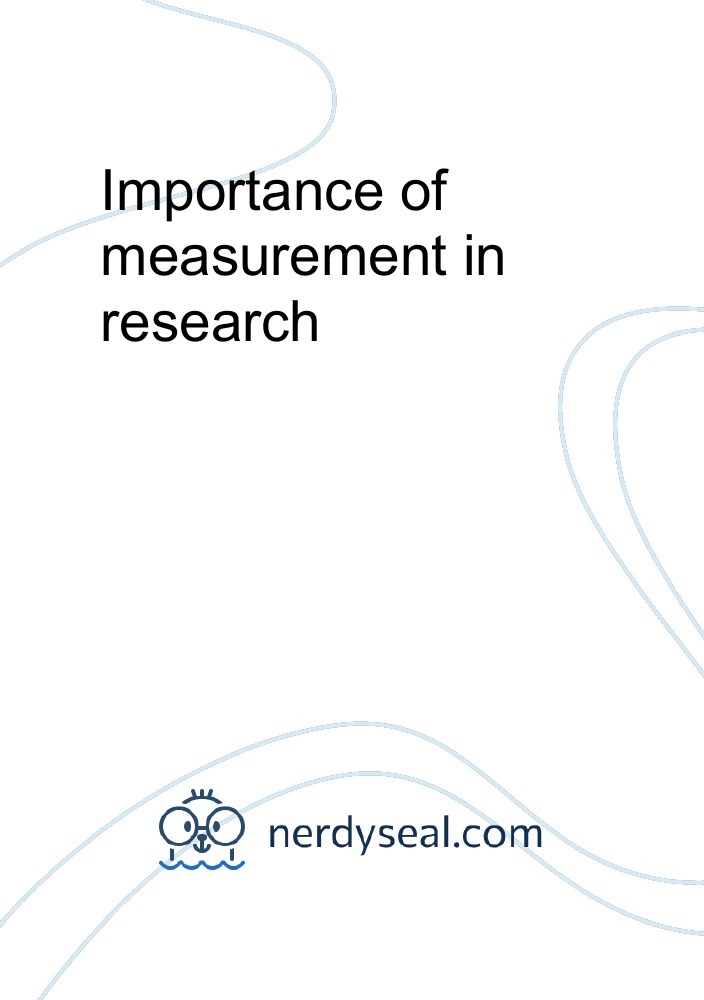Measurement is a ubiquitous aspect of human endeavor, deeply woven into the fabric of virtually all scientific, social, and economic activities. It serves not merely as a tool for quantification but also embodies a profound philosophical inquiry into the nature of reality and existence. At its essence, measurement allows us to transform abstract concepts into tangible realities, providing a language through which we can articulate our understanding of the world around us.
One of the most salient roles of measurement is found in its capacity to facilitate the scientific method. The process of inquiry hinges on the ability to observe phenomena, hypothesize explanations, and then rigorously test those explanations through quantifiable means. Whether it is the weight of a proton or the speed of light, these measurements yield crucial data that form the backbone of empirical research. Without precise measurement, the entire structure of scientific understanding would collapse, leaving an incoherent tapestry of disparate observations devoid of relational integrity.
Moreover, the significance of measurement transcends the boundaries of the scientific community. In the realms of economics and social sciences, metrics such as GDP, unemployment rates, or education levels distill complex societal phenomena into digestible figures, allowing for comparative analyses and informed decision-making. These measurements cast light on patterns, trends, and inevitable disparities within societies, thereby fostering dialogue and guiding policy interventions.
Measurement also paves the way for technological advancement. The intricate relationship between measurement and innovation is exemplified in engineering, where the design and construction of infrastructure rely heavily on precise measurements. From the dimensions of a bridge to the specifications of an electronic circuit, the importance of measurement manifests in the tangible outcomes of human ingenuity. The meticulous nature of measurements ensures that innovations are not only feasible but also adhere to safety and operational standards that protect human lives.
In addition to its practical applications, measurement holds a unique philosophical allure. It prompts the question of what it means to measure something. For instance, consider the abstract notion of happiness. How does one quantify an emotion that is inherently subjective? Measures such as surveys, scales, and indices attempt to encapsulate this intangible quality, yet they often fall short in their endeavor to grasp its full complexity. This paradox invites deeper contemplation on the limitations and possibilities inherent in the act of measurement itself.
Furthermore, the phenomenon of accuracy versus precision in measurement adds another layer of complexity. Accuracy refers to how closely a measurement aligns with the true value, whereas precision pertains to the consistency of repeated measurements. This delineation is vital, particularly in fields such as medication dosing and environmental science, where a lack of proper measurement could have dire consequences. Understanding this distinction cultivates a nuanced appreciation for the processes behind obtaining reliable data, reinforcing the importance of rigorous methodologies in research.
One cannot overlook the role of technology in evolving measurement practices. The advent of digital tools, sensors, and machine learning has revolutionized the way we gather and analyze data. High-throughput methods in genomic sequencing, for example, allow for unprecedented granularity in biological measurements, propelling forward our understanding of life processes. Such advancements illustrate that measurement is not static; rather, it is an evolving discipline that continually adapts to the demands of contemporary scientific inquiry.
Moreover, in an era increasingly characterized by big data, the importance of measurement takes on new dimensions. The capacity to synthesize vast amounts of quantitative and qualitative data offers insights that were previously unfathomable. However, this abundance also necessitates a critical examination of the metrics employed. Misleading measurements can lead to erroneous conclusions, underscoring the necessity for ethical considerations in both the collection and interpretation of data.
On a more granular level, consider the implications of measurement in everyday life. From the precision of a chef’s ingredients to the calibration of a doctor’s instruments, measurement plays a pivotal role in our daily interactions. Each spoonful of sugar and every heartbeat recorded serves as a testament to the intricate dance of measurement that governs our existence. This interdependence between measurement and experience illuminates the notion that our understanding of reality is contingent upon our ability to quantify it.
Furthermore, the psychological impact of measurement cannot be understated. The quantification of achievement, often epitomized in personal metrics like weight, income, or social media followers, inevitably shapes self-perception and societal values. This phenomenon may lead to a culture obsessed with numbers, steering individuals towards comparison and competition at the expense of intrinsic value. Hence, the ethical implications of measurement extend beyond mere practicality, weaving themselves into the very identity of individuals and communities.
In conclusion, the importance of measurement transcends mere quantification; it encapsulates a profound intersection of science, philosophy, technology, and social dynamics. It allows us to navigate through both the tangible and intangible realms of existence, fostering understanding and innovation. As we continue to evolve in our measurement practices, one must remain acutely aware of the implications, challenges, and responsibilities that accompany this indispensable facet of human endeavor. The quest for knowledge, anchored in the principles of measurement, remains a cornerstone of our collective pursuit for meaning and understanding in an increasingly complex world.










